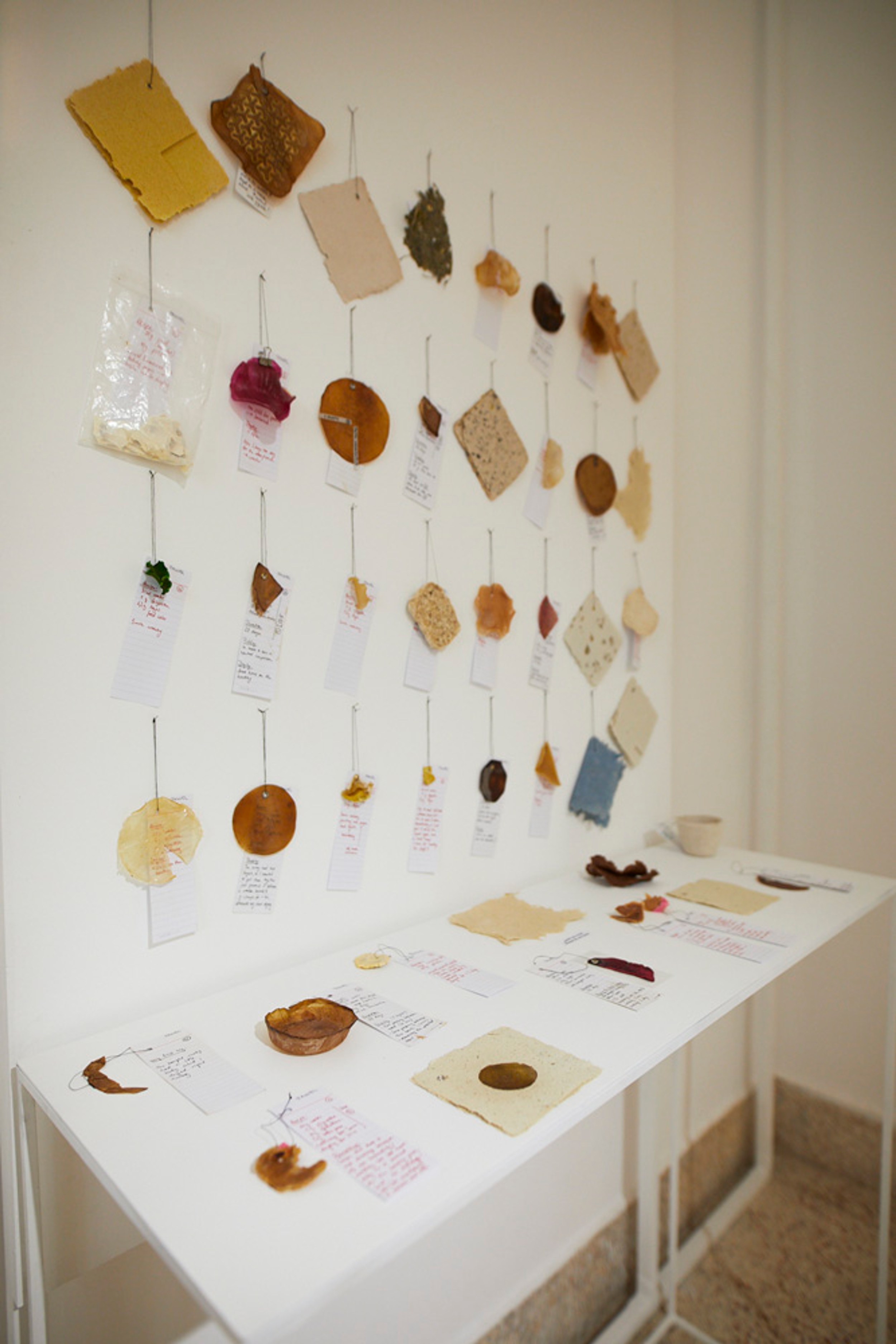Body
Material Innovation
Material Innovation is an exhibition showcasing the results of the first workshop series as part of the Textile Innovation Lab research project, in which participants were introduced to various methods of — from bioplastics and growing kombucha leather, to more traditional paper-making and natural dyeing. It was held at Amman Design Week 2019's Crafts District.
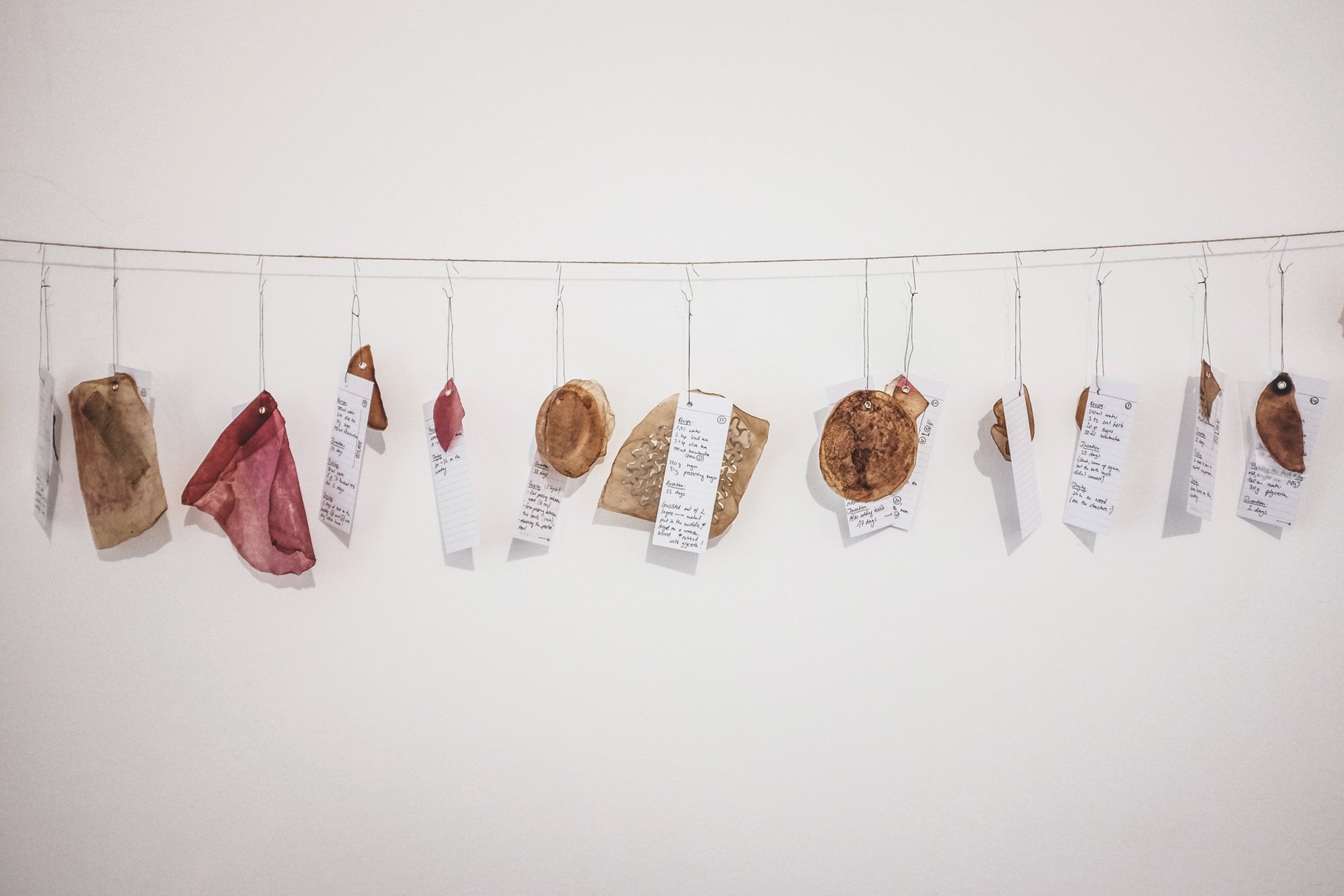
TEXTILE INNOVATION LAB
Textile Innovation Lab is a multi-year research project and program that engages designers and practitioners in both traditional and contemporary methods of producing and processing textiles. The recurring and themed workshops invite various experts and facilitators to lead hands-on crafts and making workshops, with the purpose of building a material library of textiles.
The first workshop was a deep-dive into local possibilities for the textile industry, ranging from material explorations and fabric processes to weaving techniques, applications, and uses.
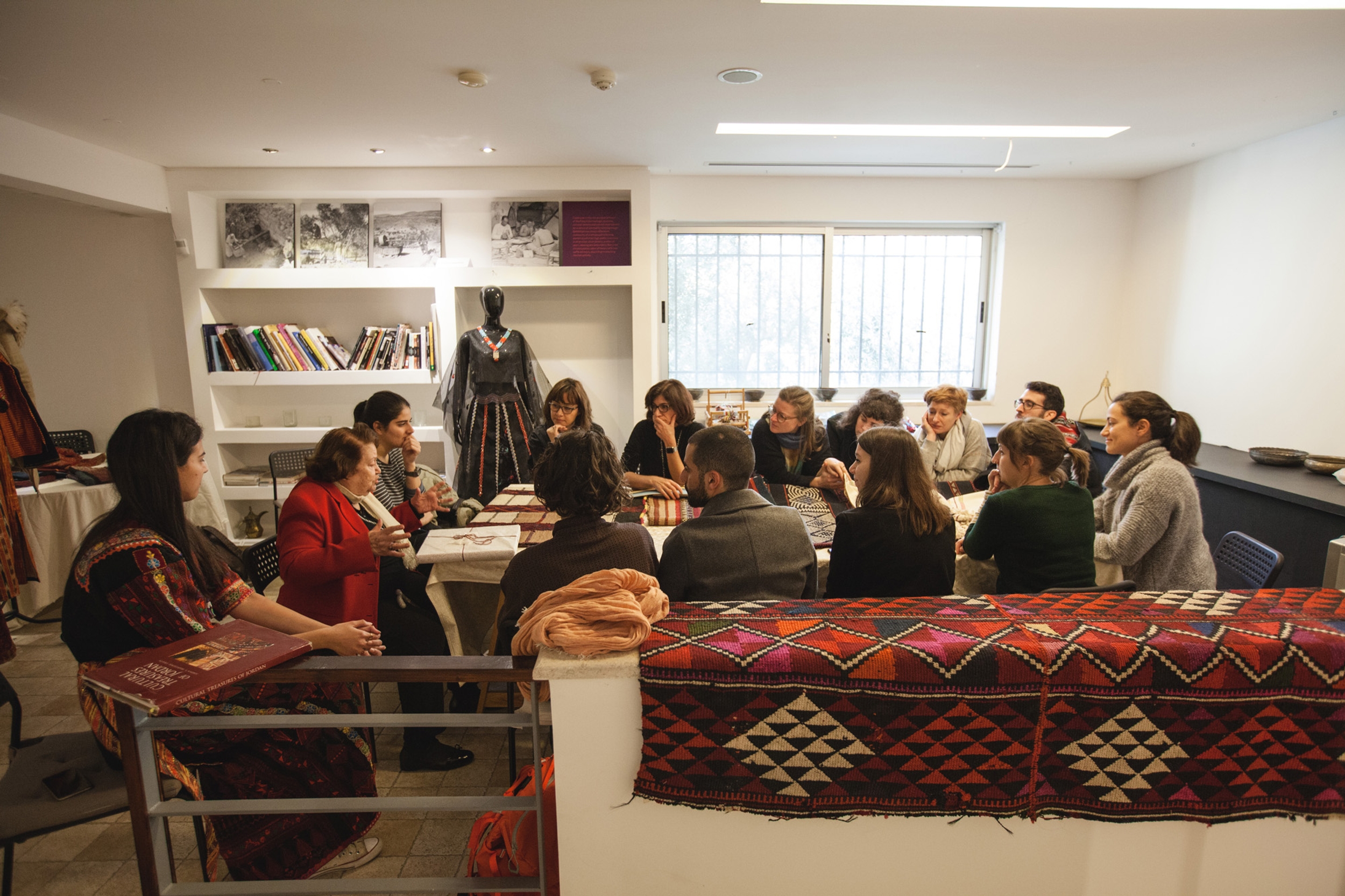
Meeting Widad Kawar at Tiraz: Widad Kawar Home for Arab Dress.
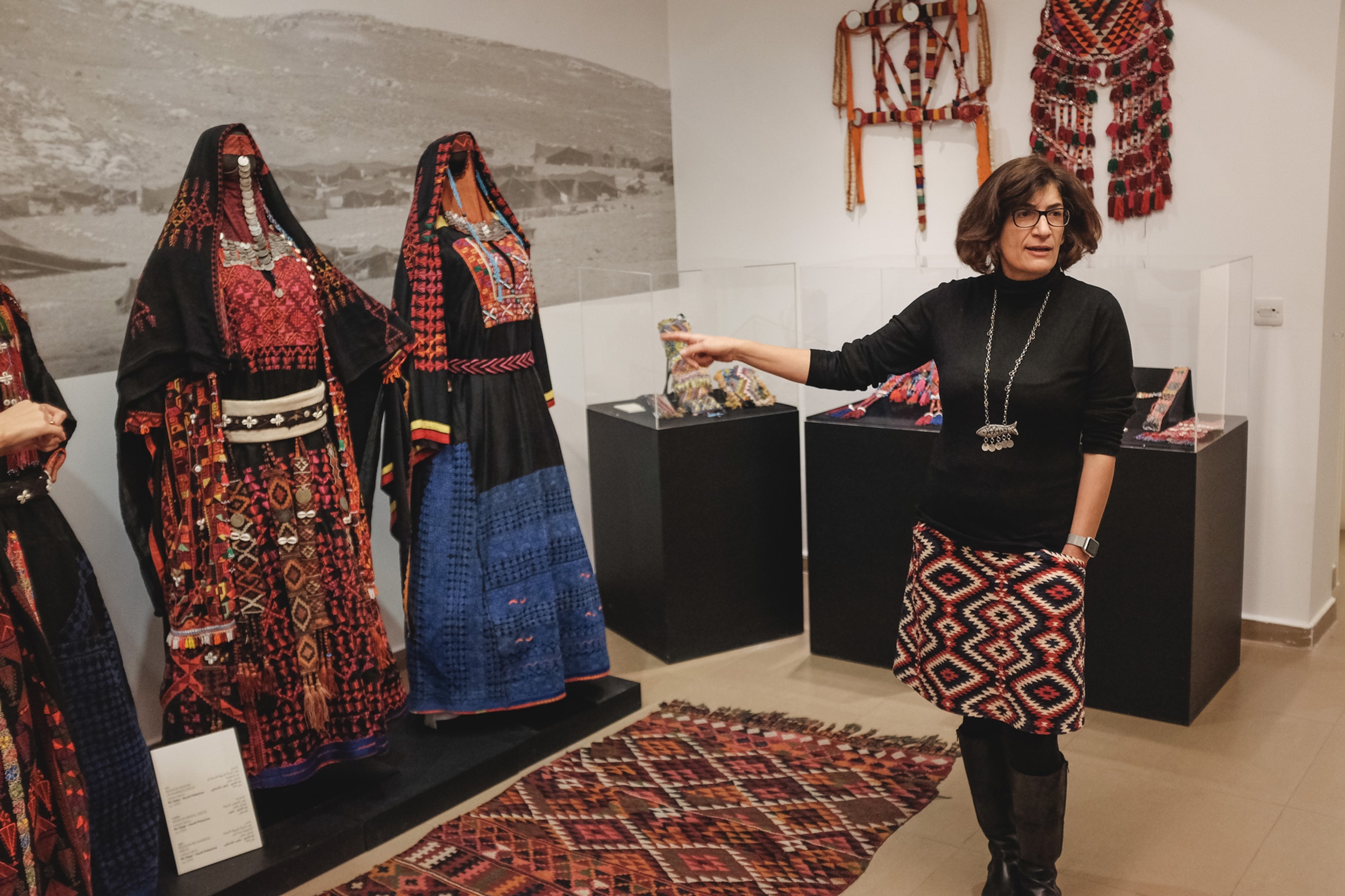
Throughout history, Jordanians have been primary in the creation of cultural objects and used in practical, day-to-day uses — in architecture, as we see in Bedouin tents, furniture, products, and clothing and fashion. More than that, textiles have been an important part of the culture and identity of a place, reflecting its history, lifestyles, economy, and values.
Contemporary fashion designers, architects, artisans, and craftspeople working with textiles are increasingly interested in preserving, collecting, and taking inspiration from tradition in an attempt to redesign and create a contemporary understanding of textile — both in aesthetics and in the sustainability of its production and distribution.
During their visit to ‘Tiraz: Widad Kawar Home for Arab Dress’, participants were introduced to Bedouin weaving patterns and techniques, and had the chance to study the vast collection of traditional dresses of Jordan and Palestine.
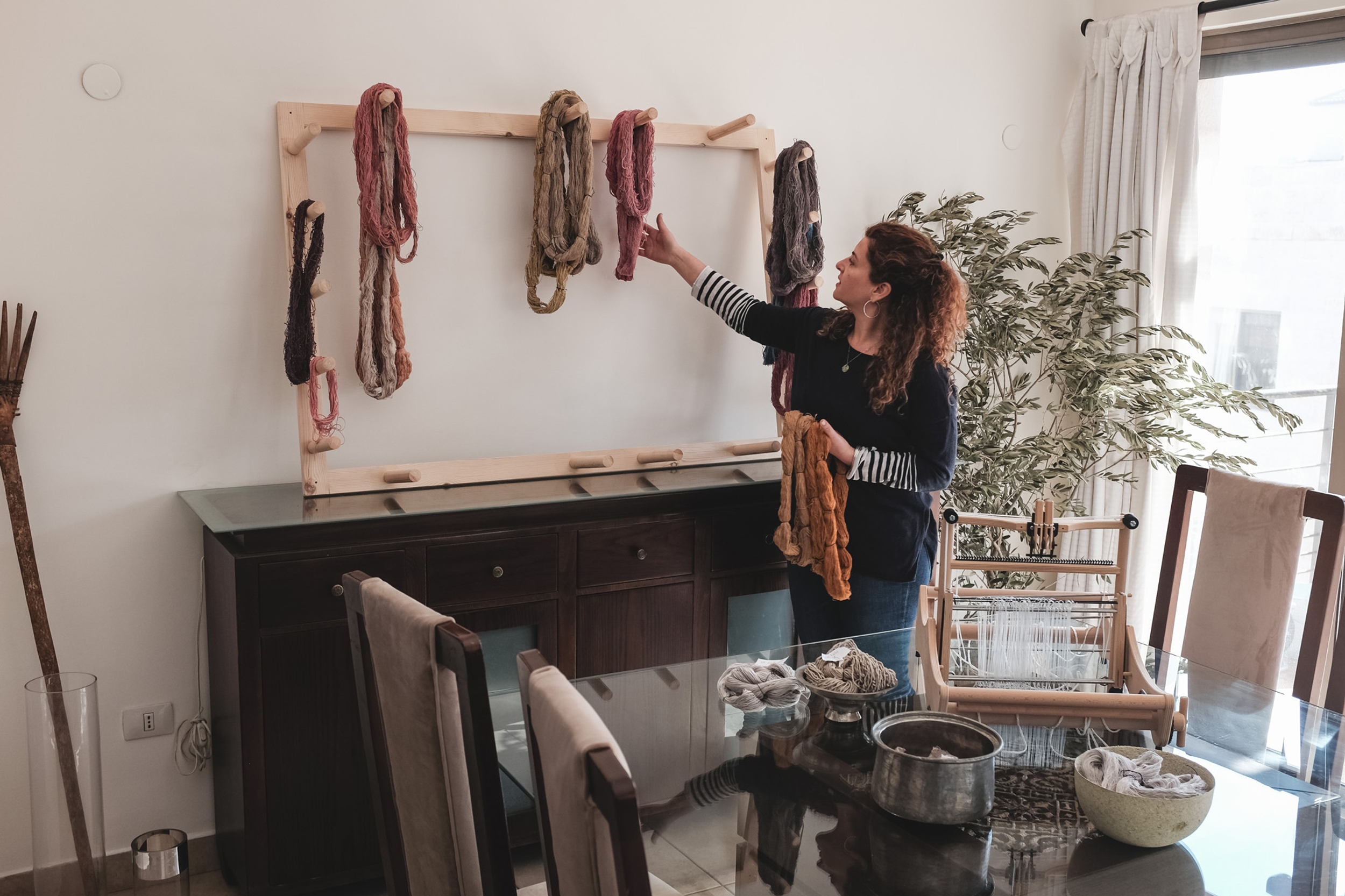
Participant-led workshop on natural dyes and textiles with Tan Crafts Jo.
At Iraq Al Amir Women’s Cooperative, the participants had a first-hand introduction to the processes of paper-making using natural and recycled materials, and they also participated in a hands-on workshop in weaving and ceramics.
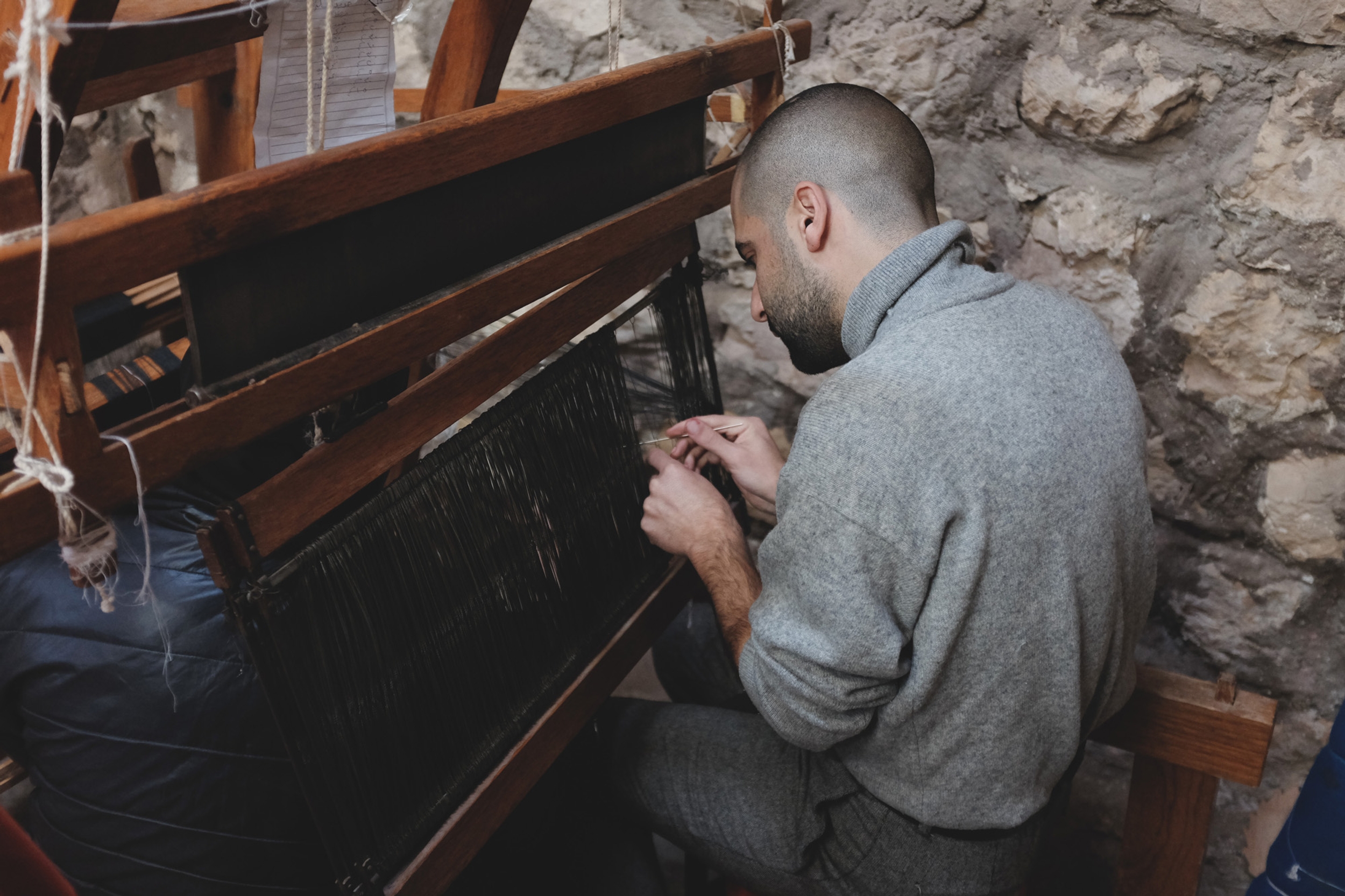
Traditional loom weaving at Iraq Al Amir Women's Cooperative.
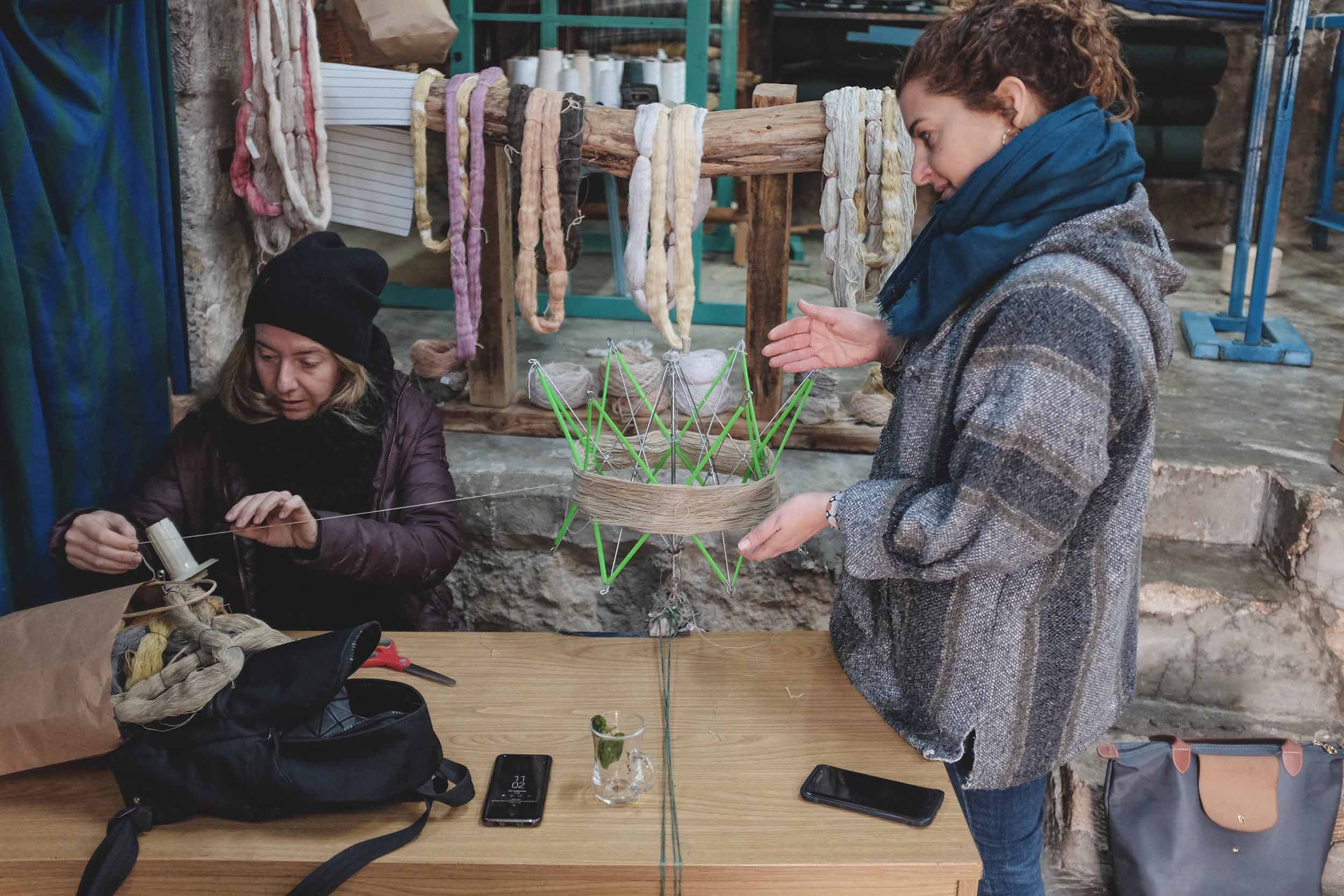
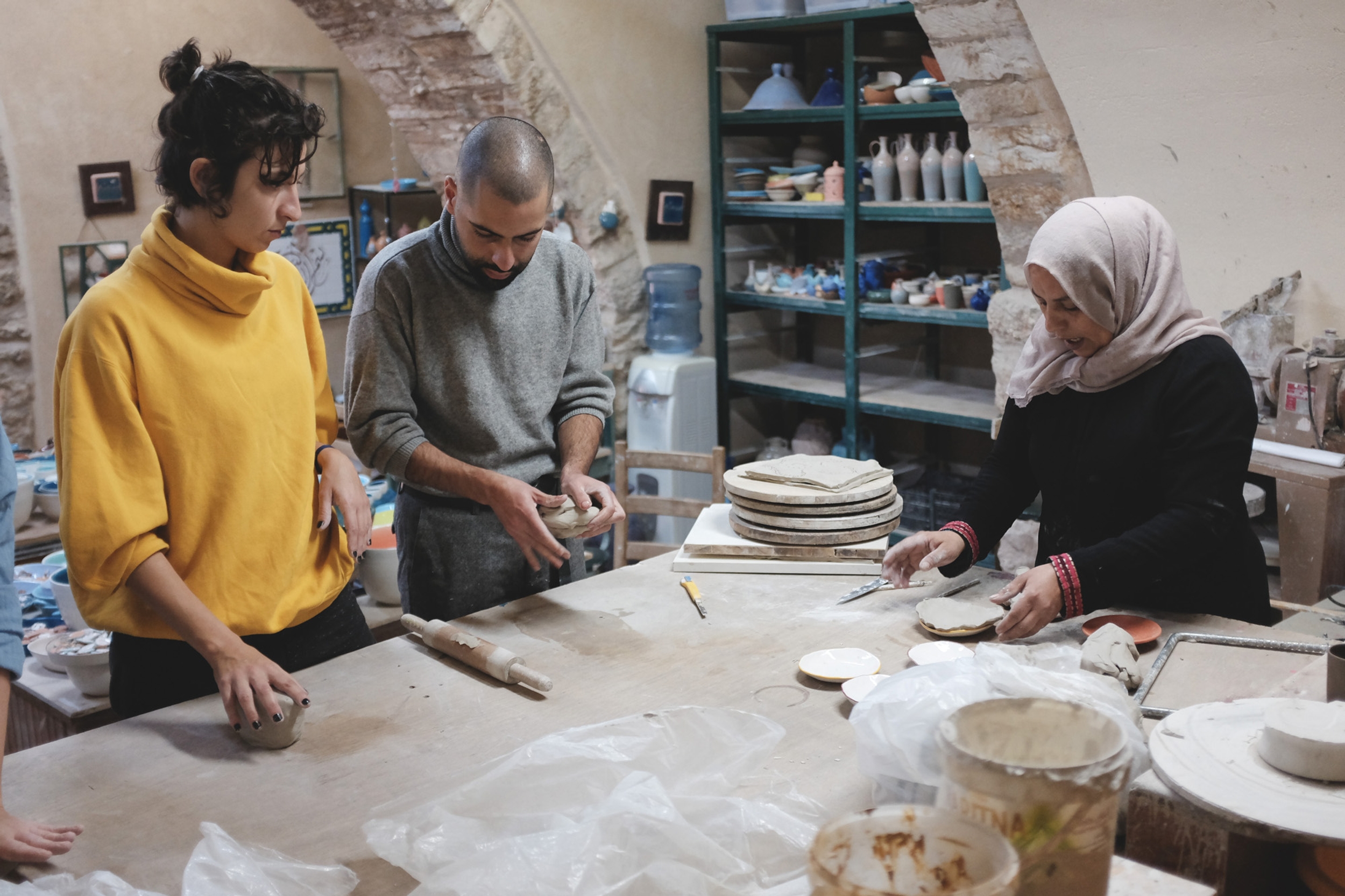
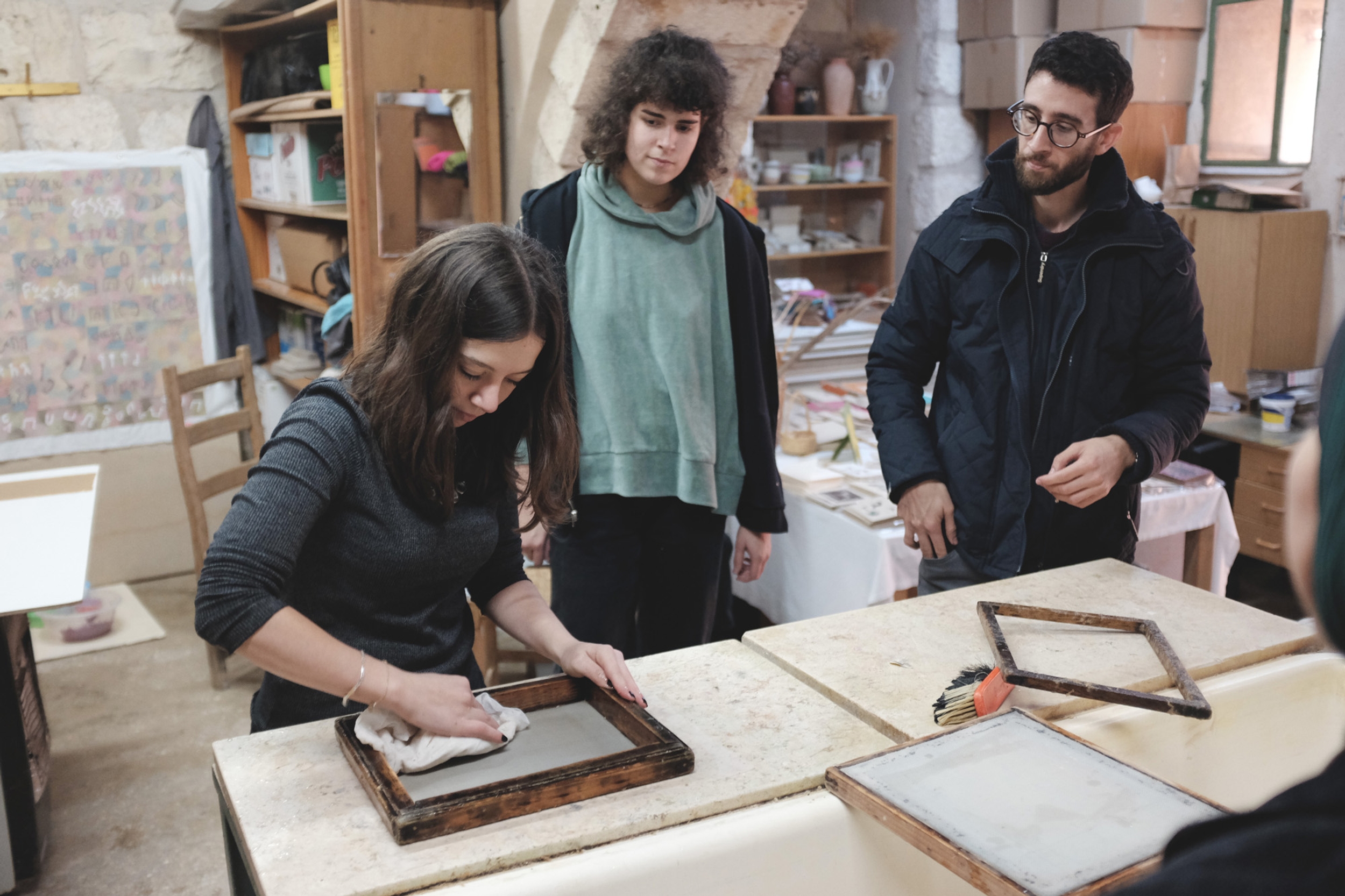
Paper-making using recycled plant materials at Iraq Al Amir Women's Cooperative.
Finally, in a workshop facilitated by German artist Annette Fauvel, designers were challenged to experiment with merging the traditional techniques of natural dyeing, paper-making, embroidery, and weaving, with new experimental methods and materials such as making bioplastics and growing kombucha leather.
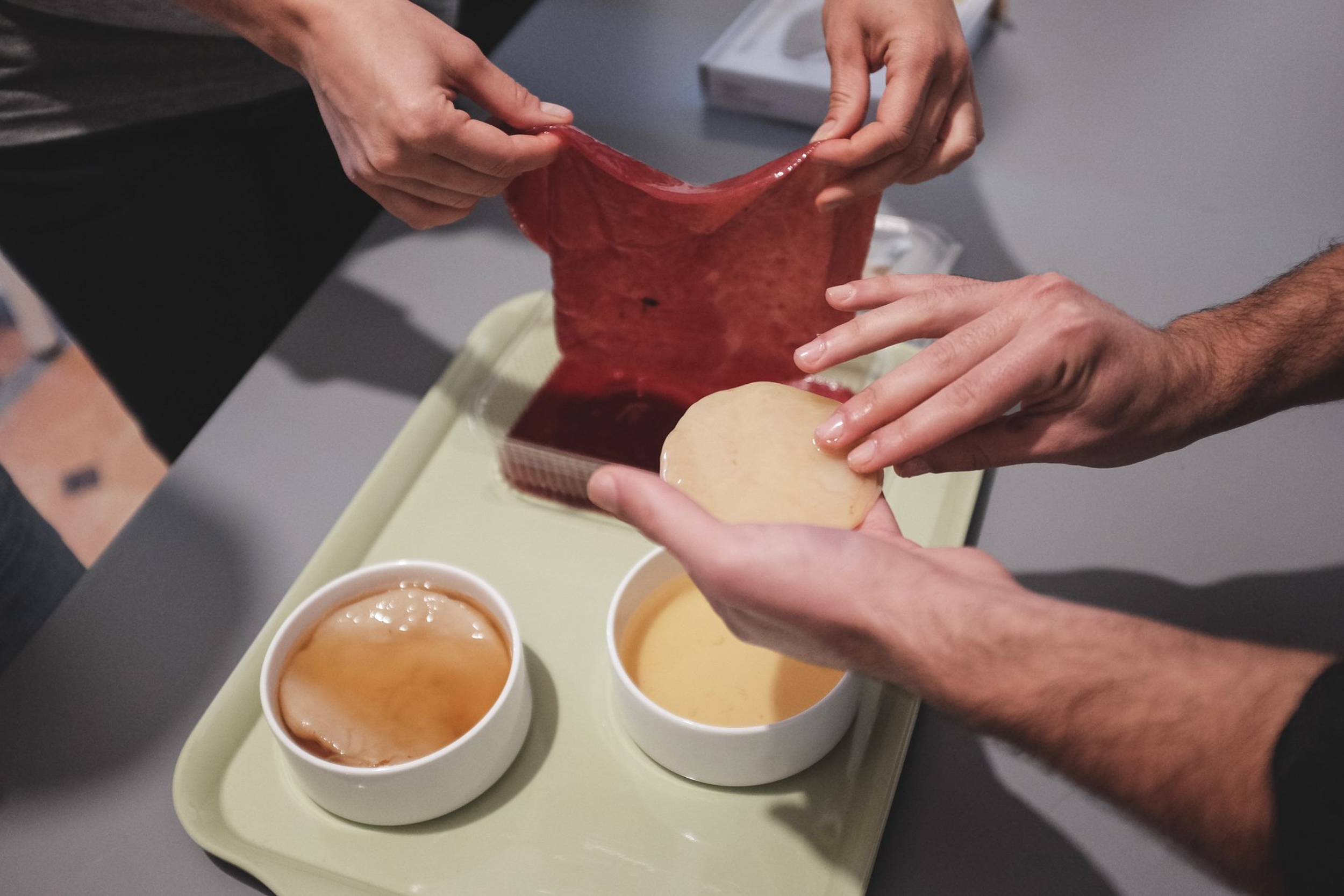
Workshop on bioplastics, facilitated by Annette Fauvel. Photo by Hareth Ramzi.
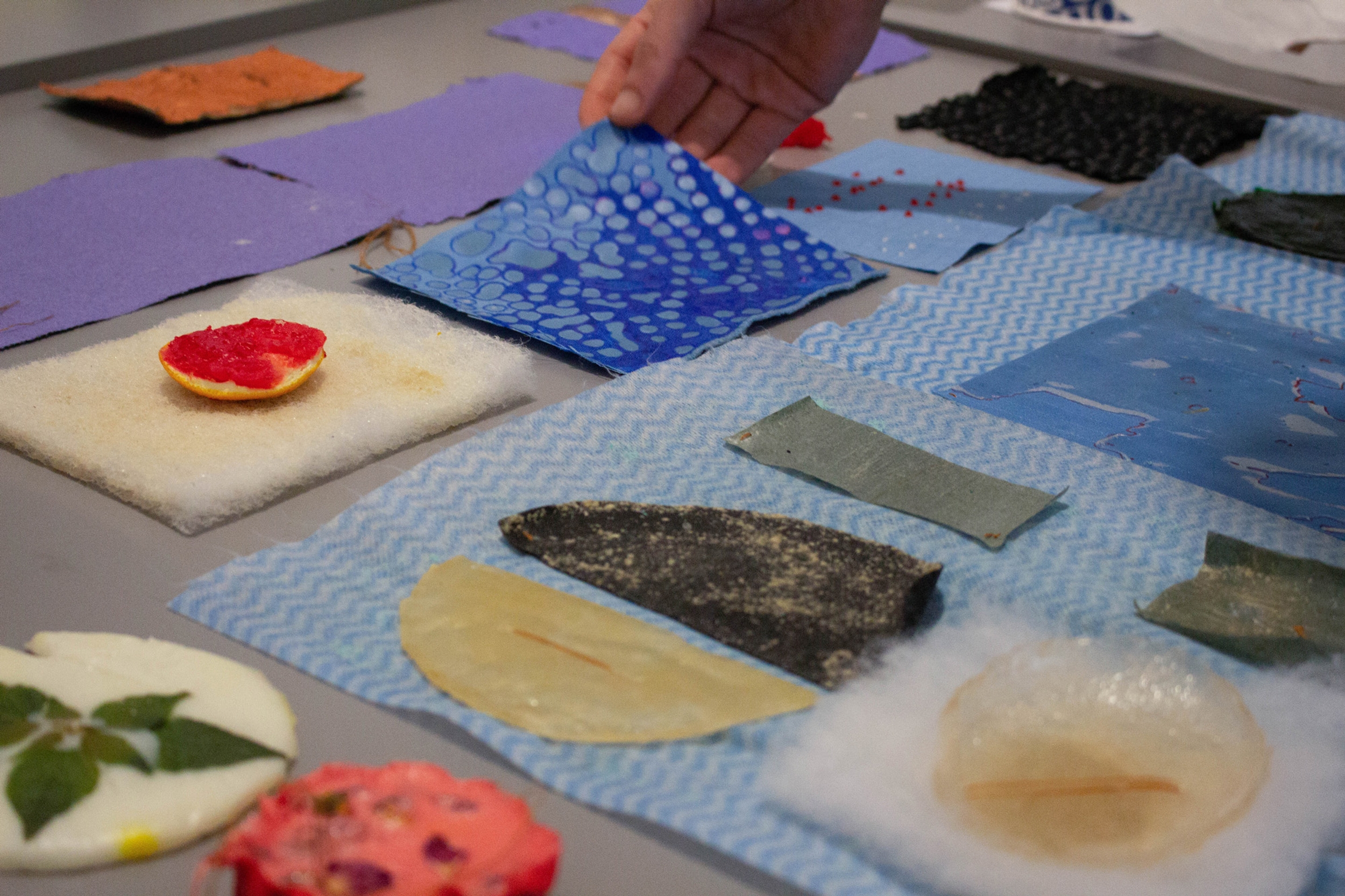
Sample materials created by participants of the Textile Innovation Lab workshop.
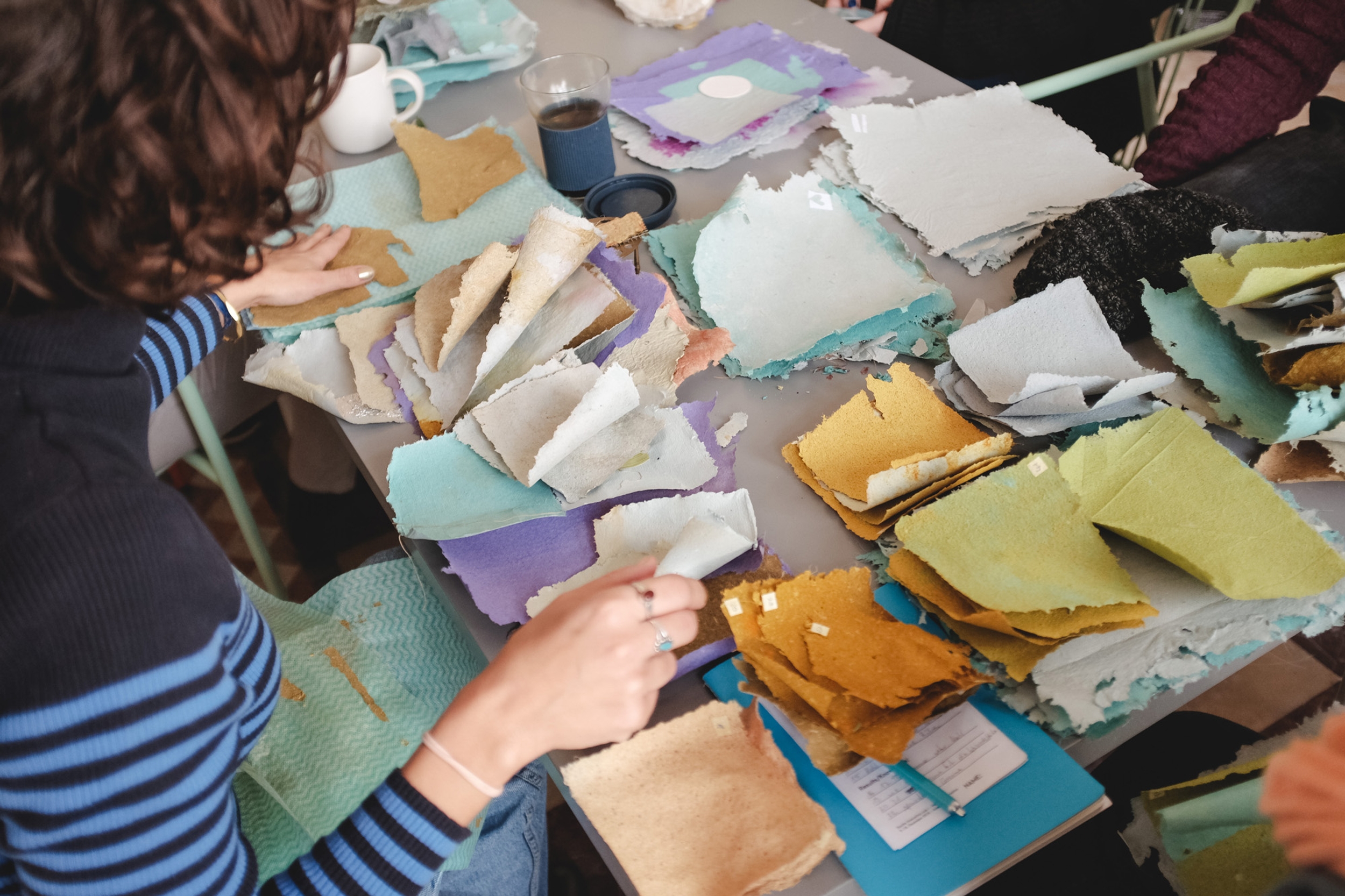
Sample papers made by participants of the Textile Innovation Lab workshop.
MATERIAL INNOVATION EXHIBITION
Material Innovation is an exhibition that introduces new processes in which sustainable and alternative materials can be produced and used in textile applications.
It featured samples of materials created using three different methods; kombucha-growing, paper-making, and bioplastic-cooking.
Working through methods that contribute to a more sustainable, material future, the materials are made out of 100% natural, non-toxic raw materials found or processed in Jordan. The attempt to search for organic alternatives while maintaining traditional cultural practices opens questions about our relationship with material life-cycles, durability, and consumption.

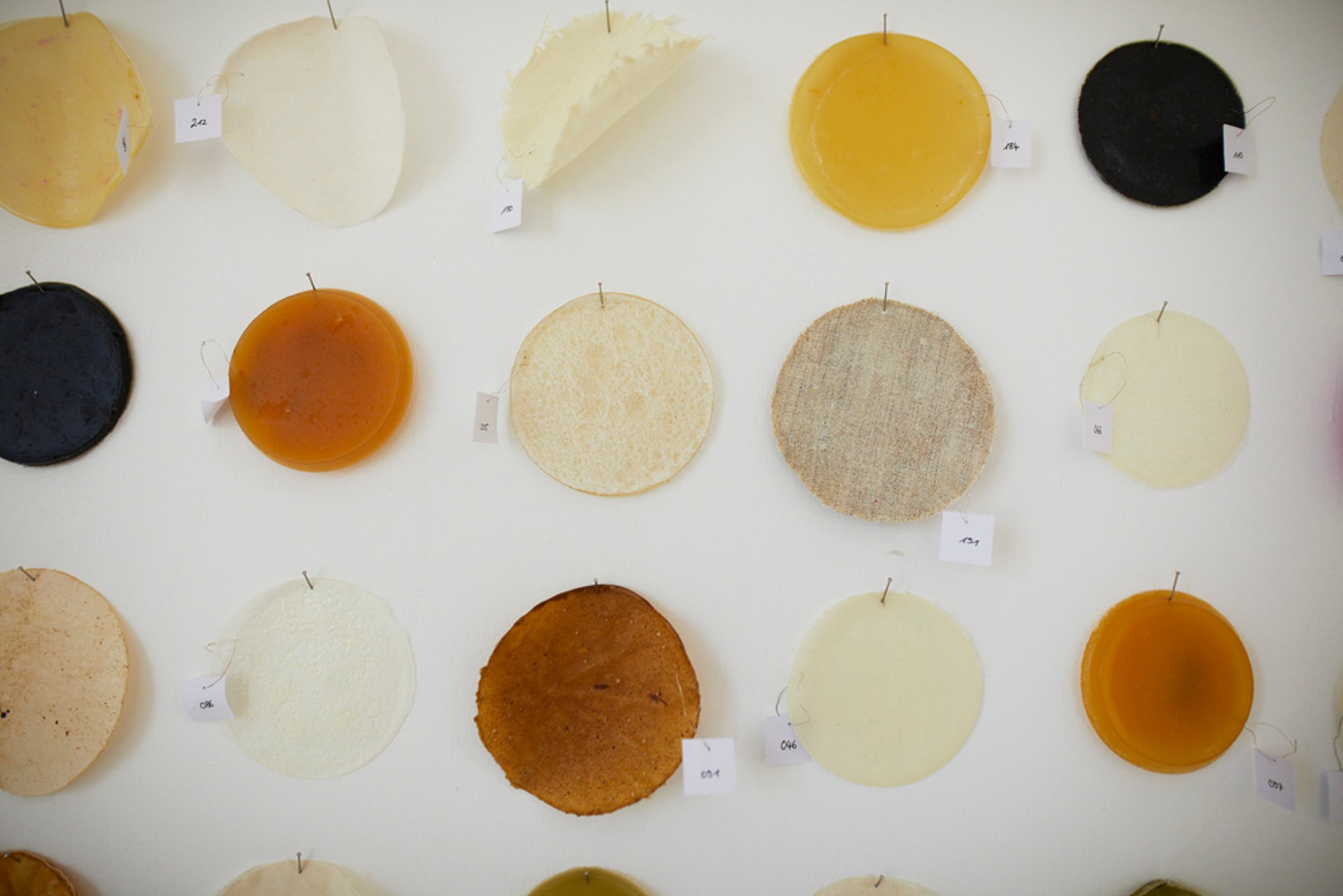
Katja Lonzec — Scoby Science, 2018 - 2019. Kombucha leathers.
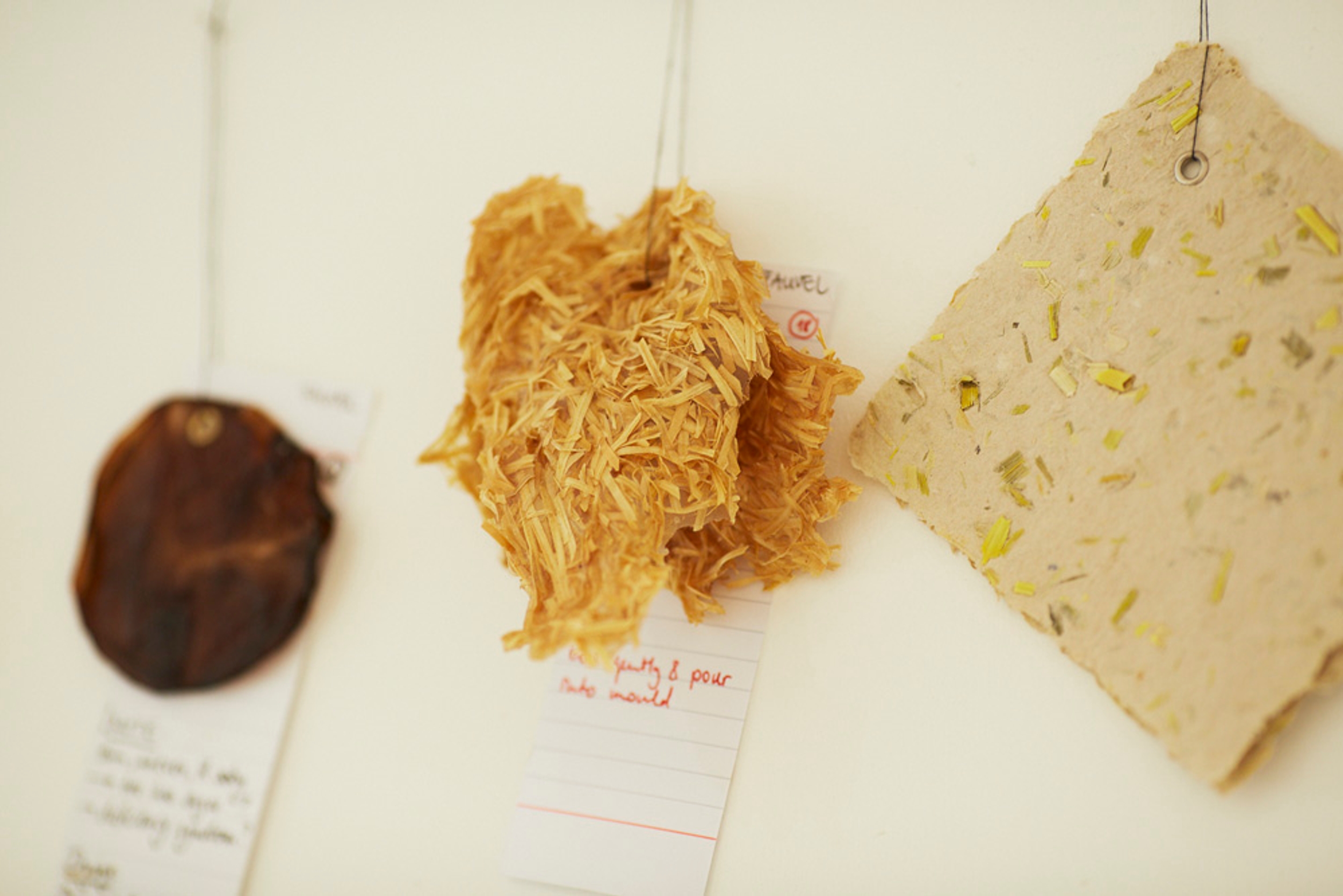
Annette Fauvel — Demonstration, 2018.
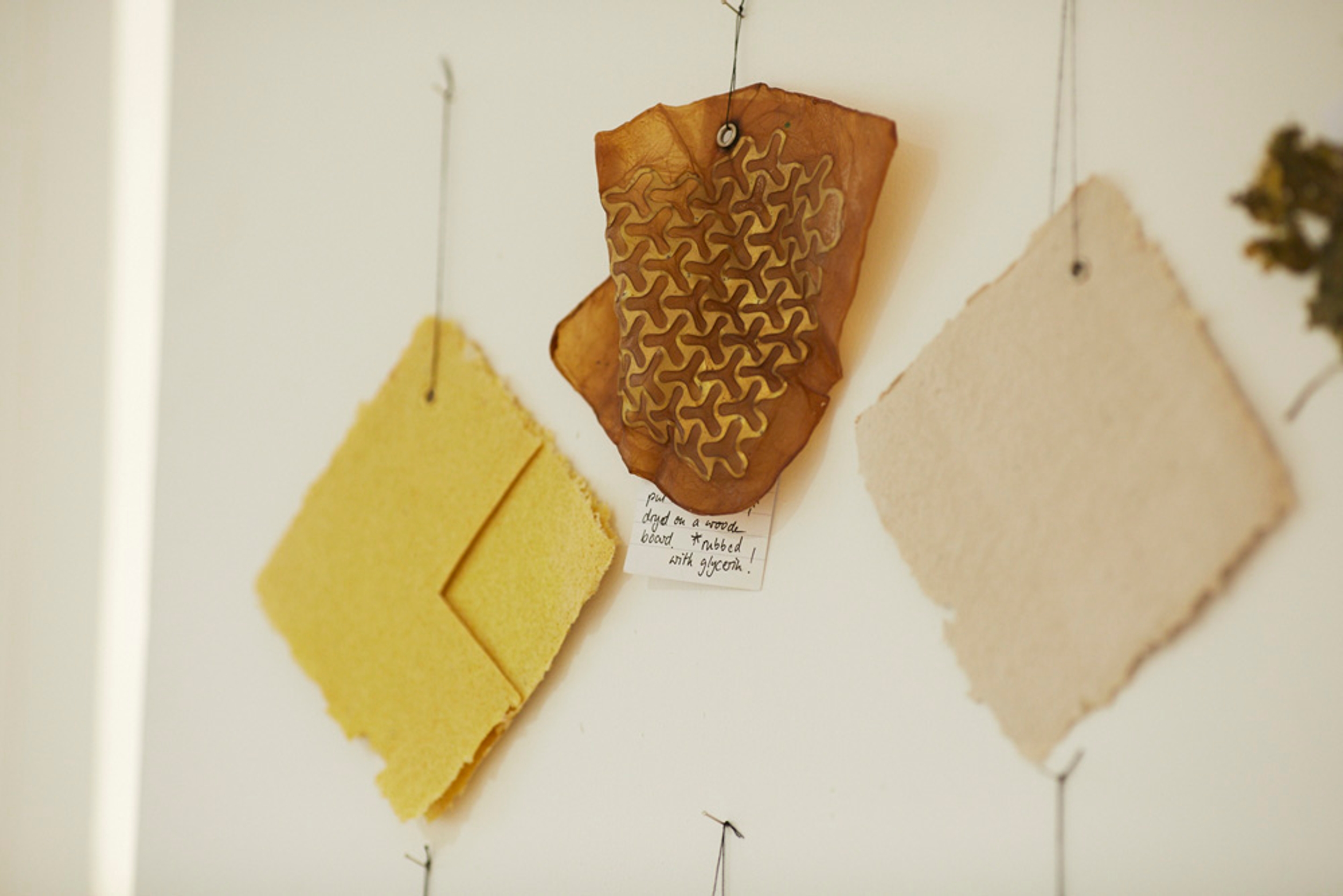
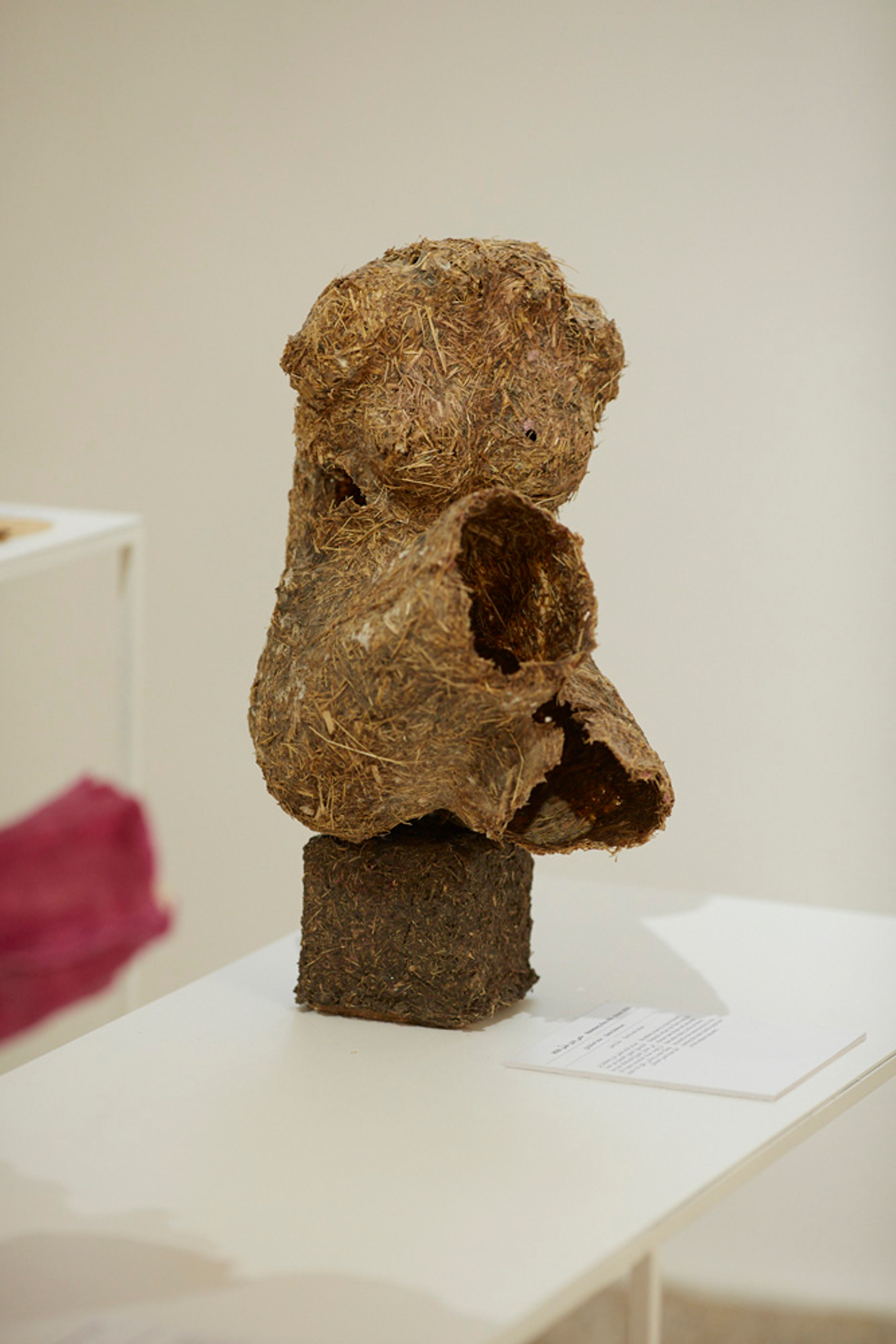
Sama Shahrouri — Rosemary, Kiss, Kill, 2019. Sculpted clay molded to create bioplastic casts.
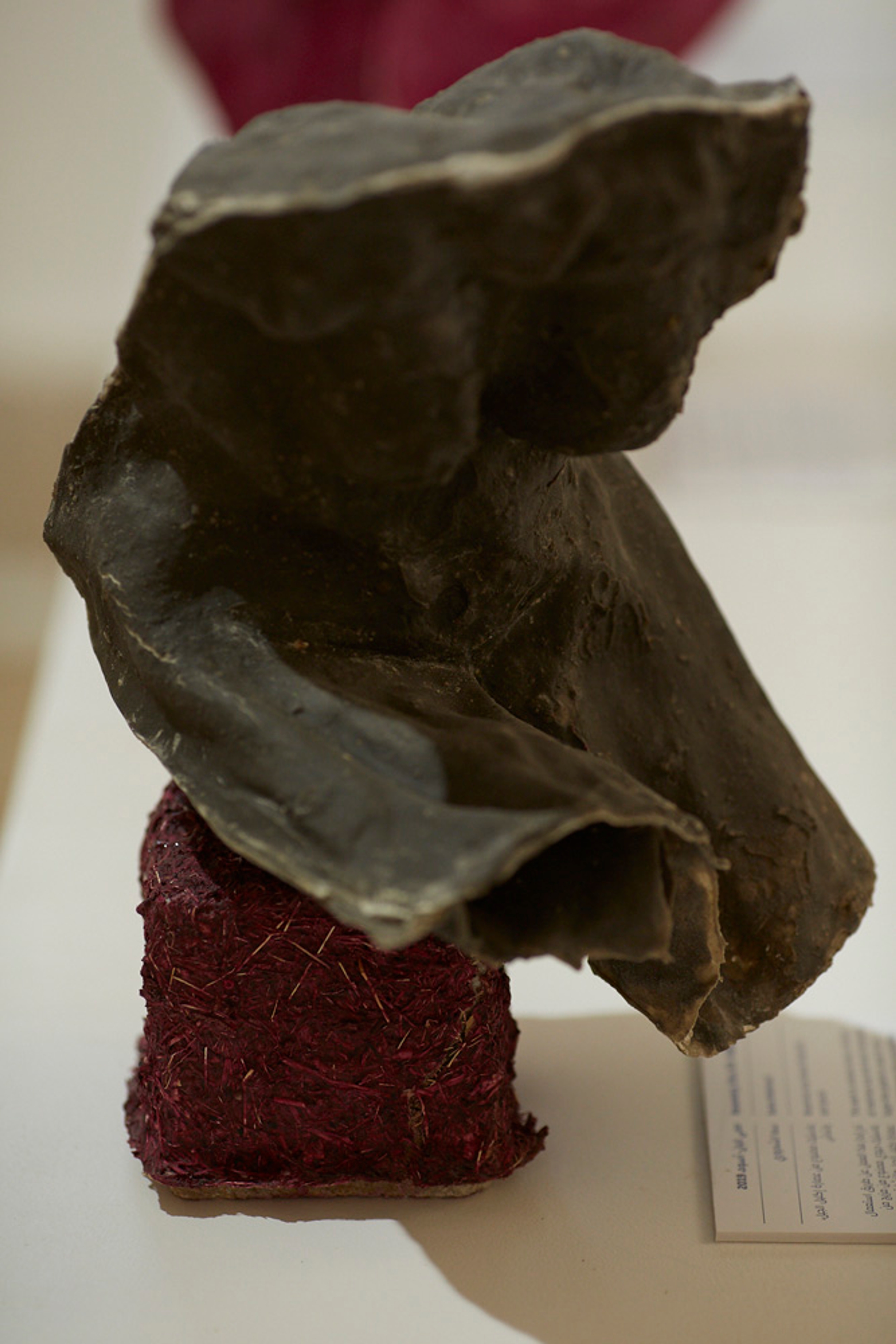
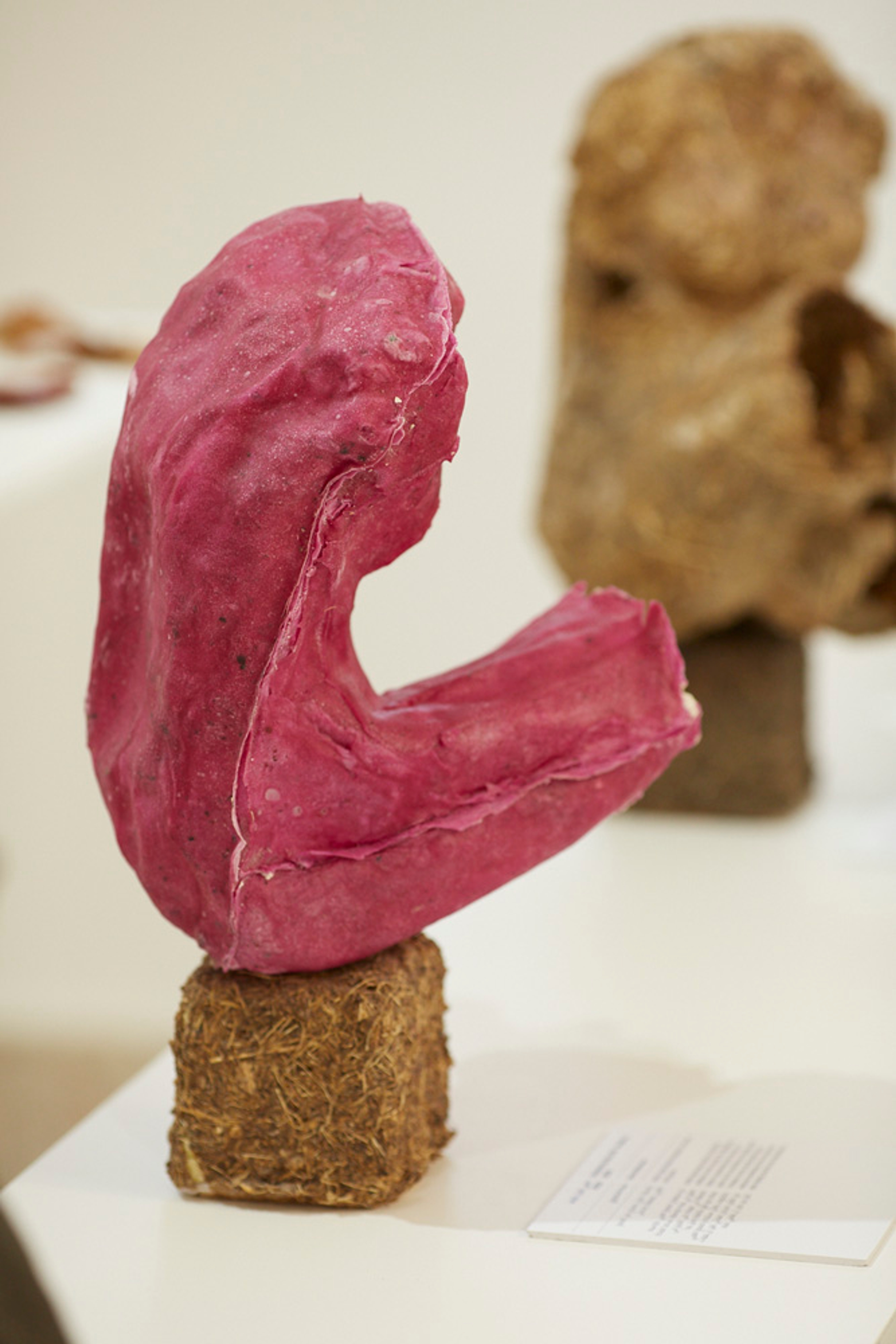
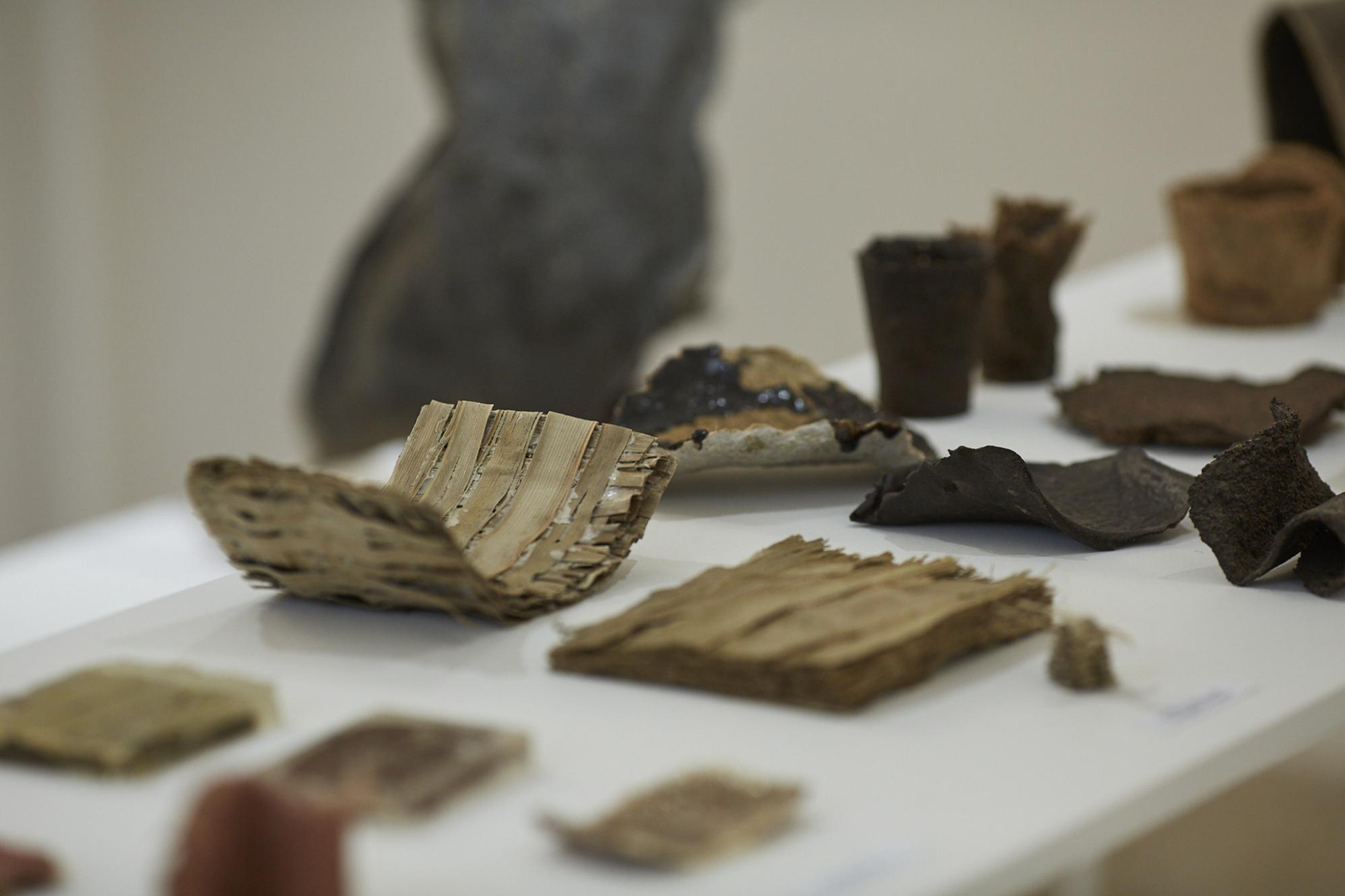
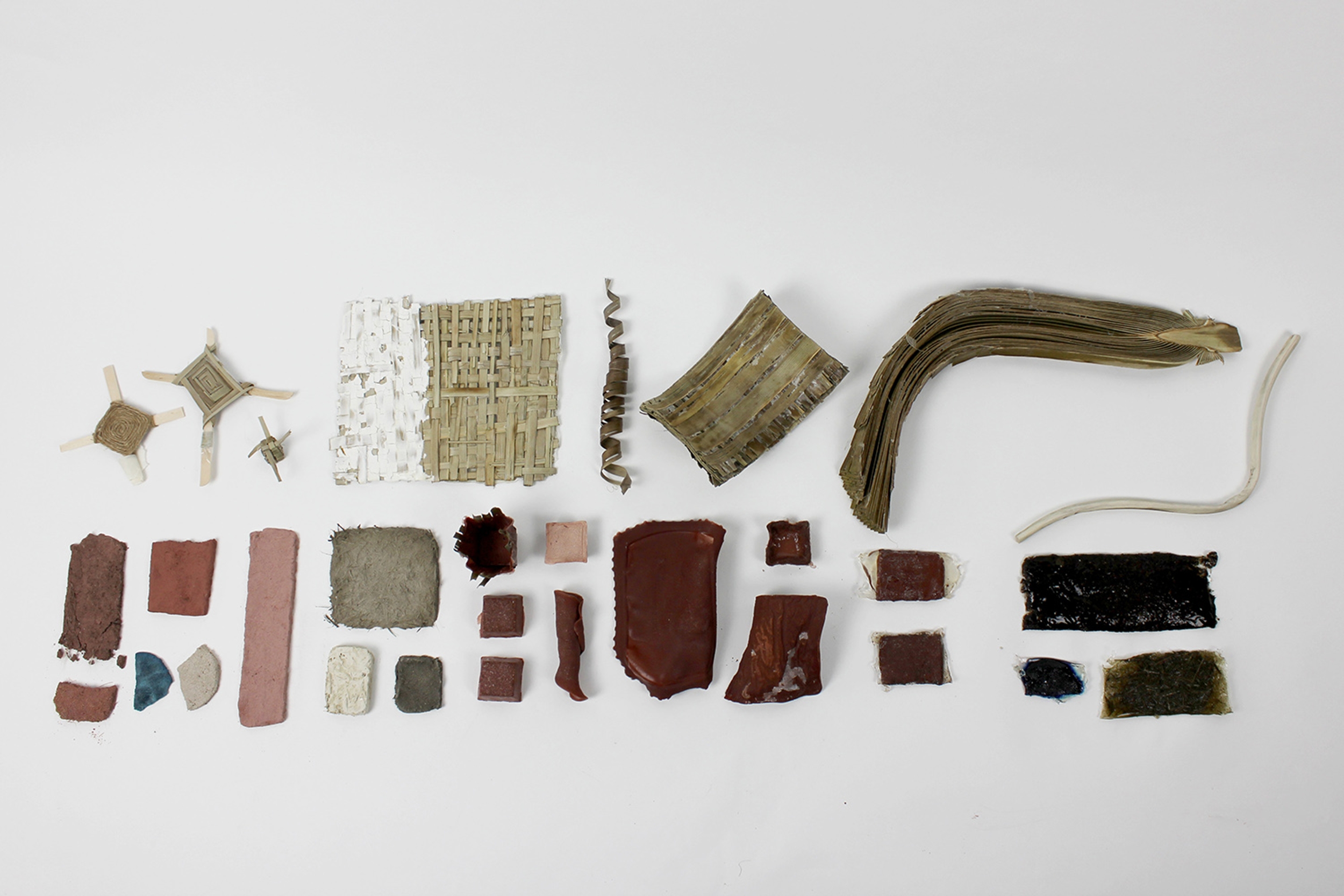
Twelve Degrees — Made from Jordan, 2019. Samples resulting from an 8-month exploration using a variety of locally sourced raw materials including clay, dead sea mud, tree resins, stone, minerals, oil mill waste, and scoby.
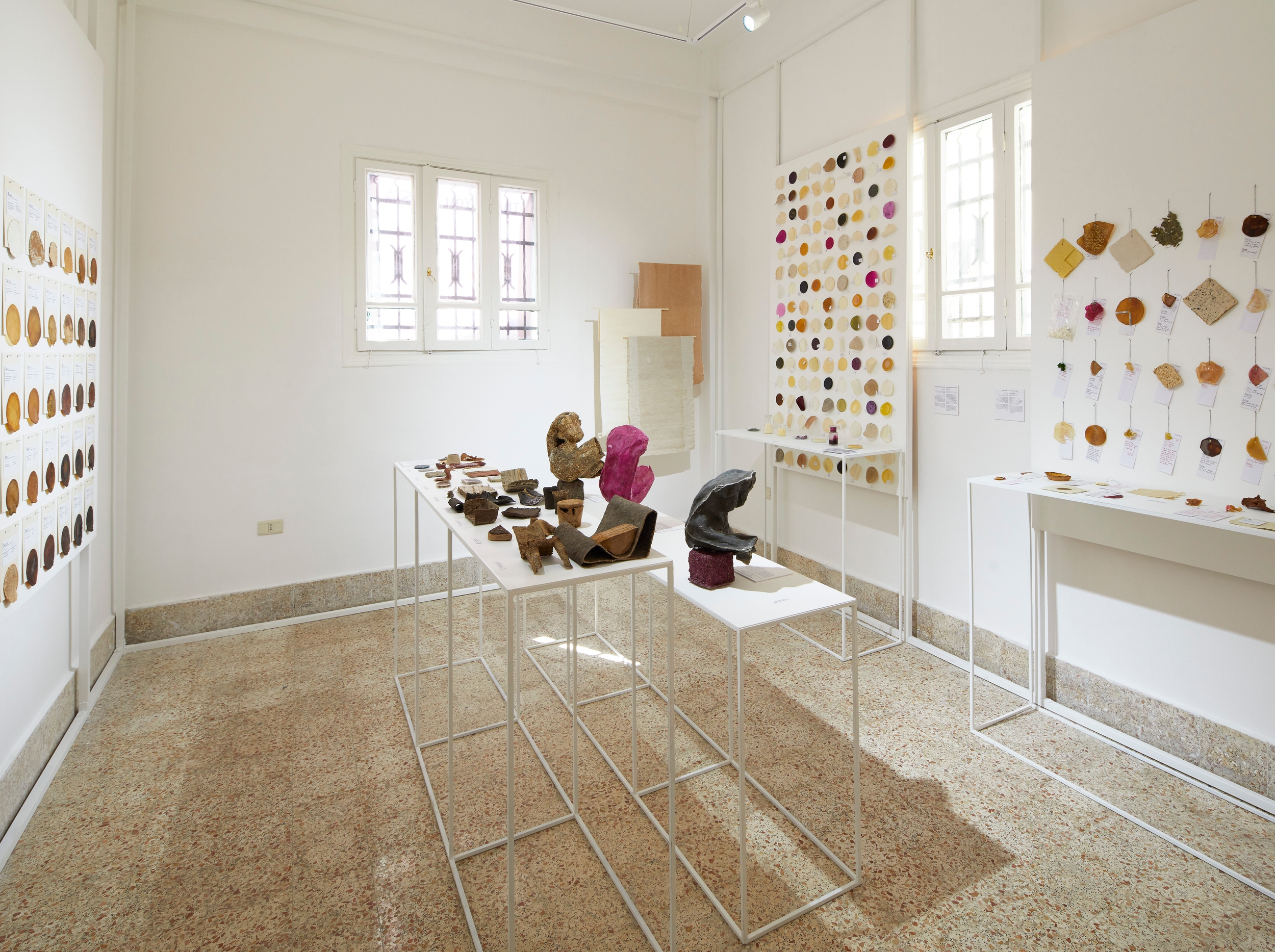
Material Innovation - Exhibition at Amman Design Week 2019's Crafts District, curated by Arini.
